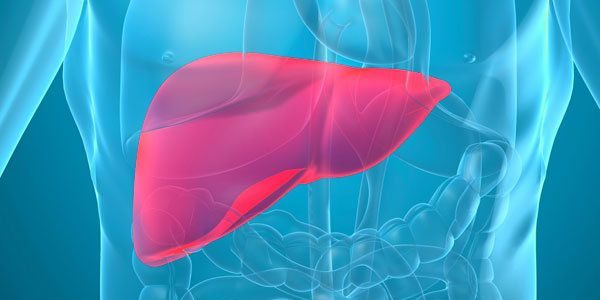Alcoholic hepatitis – what is this, symptoms, diagnostics, treatment and prevention of alcoholic hepatitis

Alcoholic hepatitis – What's it? Alcoholic hepatitis is an inflammation of the liver tissue, that develops as a result of toxic to liver alcohol.
This disease is characterized by the accumulation of fat within the liver cell inclusions (hepatocytes), as well as the loss of some portions of the liver. Over time, the liver tissue is replaced by fibrous tissue, and the body ceases to perform its functions.
Usually, alcoholic hepatitis develops later 5-7 years of regular alcohol consumption (more 50 grams of pure alcohol per day for men, and more 20 grams for women).
Alcoholic hepatitis: the cause of the
The cause of alcoholic hepatitis is the excessive consumption of alcoholic beverages. The regular use of more 40-60 grams of pure ethanol per day for several years leads to the development of inflammatory process in liver tissues.
Factors, contributing to the development of alcoholic hepatitis, are:
- one-time use of large doses of alcohol;
- prolonged use of alcoholic beverages;
- genetic predisposition;
- poor nutrition;
- overweight and obesity;
- viral hepatitis.
Alcoholic hepatitis: symptoms
The disease progresses slowly, often invisible to the patient. After severe zapoev may develop acute alcoholic hepatitis.
Symptoms of alcoholic hepatitis combined several syndromes:
- Asthenic syndrome. The patient has operability declines, increased fatigue, appears weak, drowsiness and appetite.
- Dyspeptic symptoms. Have a variety of digestive disorders: nausea, borborygmus, bloating and other.
- Systemic symptoms. Characterized by peripheral neuropathy, muscular atrophy, taxikardiej, cachectic patients, arterial hypotonia and other manifestations.
- Syndrome of small liver symptoms. This syndrome is characterized by teleangiojektazijami, feminization of appearance, overdetermination of the parotid glands, a penchant for the formation of bruises, zheltushnoj colouring of the skin, lejkonihijami and other forms.
Alcoholic hepatitis: diagnostics
In the first phase collects medical history and analysis of the complaints of the patient.
Laboratory research methods:
- general blood analysis;
- biochemical blood analysis;
- coagulogram;
- lipidogram;
- definition of markers of viral hepatitis;
- general urine analysis;
- coprogram;
- other studies (at the discretion of the physician).
Instrumental research methods:
- ultrasound examination of abdominal cavity organs;
- esophagogastroduodenoscopy;
- puncture biopsy of liver;
- elastography;
- retrograde c cholangiogram;
- Magnetic resonance imaging;
- spiral computed tomography;
- other research methods.
Alcoholic hepatitis: types of disease
There are two forms of alcoholic hepatitis: persistent and progressive. Persistant form is relatively stable and reversible. With the progressive form of the condition of the patient deteriorates.
Downstream alcoholic hepatitis sometimes acute and chronic. The acute form of the disease lasts less 6 months. In turn, acute alcoholic hepatitis can be represented by four different variants of currents: latent, icteric, Cholestatic and ful'minantnyj options.
Chronic alcoholic hepatitis lasts for more 6 months and often can progress into cirrhosis.
Alcoholic hepatitis: patient actions
The patient should be as soon as possible to stop taking alcohol. This should help it close.
Alcoholic hepatitis: treatment
The patient shows diet-table no. 5. Conservative treatment involves admission hepatoprotectors, drugs and Ursodeoxycholic acid ademetionina. Also bo'nomu is assigned to vitamin therapy (vitamins and, IN, And (e)), anti-inflammatory hormone drugs (glucocorticoids), tissue inhibitors and protease inhibitors of angiotensin-converting enzyme (to reduce blood pressure).
If you cannot restore the liver surgery is appointed by a conservative-liver transplantation. More often than not carry out transplantation of parts of the liver from a close relative.
Alcoholic hepatitis: complications
Alcoholic hepatitis can lead to the following complications:
- cirrhosis of the liver;
- ascites;
- peritonitis;
- esophageal varices;
- hepatic encephalopathy;
- gepatocellûlârnaâ cancer;
- hepatic-pulmonary syndrome;
- hepatic gastropathy;
- violation menstrual function;
- infertility.
Alcoholic hepatitis: prevention
The main preventive measure is to refrain from accepting alcohol, as well as rational and balanced nutrition.
